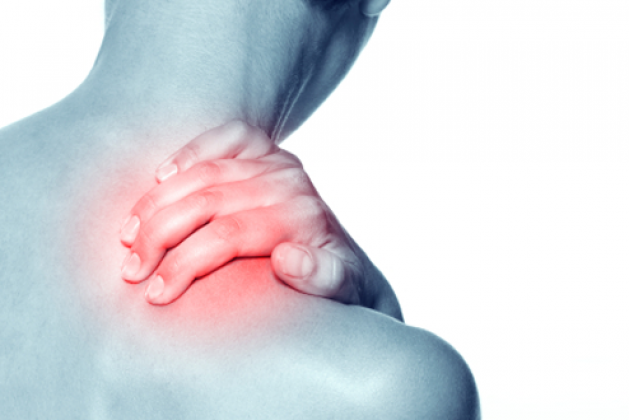
There is a difference between having a sore muscle and having a muscle cramp. Even more, the pain that is experienced is different. Some muscle pain is generalized to a single muscle or a group of muscles, while other times pain radiates across muscle groups.
What Causes Muscle Pain?
Muscle pain, or sore muscles, can be the result of overworking a muscle or a muscle group. This can happen during exercise or physical activity.
Stress is also a cause of muscle pain. When we experience stress, our muscles tend to contract, forming knots that are strong enough to dislocate bones. When your whole body hurts, or you experience generalized pain through many different muscle groups, you might have an infection.
Illness is another a cause of muscle pain. Poor health is a common correlation of muscle pain. High cholesterol, for example, can cause muscle pain.
Some medications also have a side effect of muscle pain. You can talk to a pharmacist about any medications that you take. Your pharmacist should be able to tell you if any of the medication that you are taking can cause muscle pain. She or he might have a recommendation for a different medication that does the same job, but does not cause muscle pain. Statin medications are known to cause muscle pain as a side effect.
In addition, injury is a common cause of muscle pain, such as injuries that are sustained during an automobile accident.
Chronic pain disorders such as fibromyalgia, chronic fatigue syndrome, lupus and lyme disease can all cause muscle pain.
How to Treat Muscle Pain
Medical attention should be sought if you have muscle cramps that are frequently occurring, or have been accompanied by swelling or changes in skin coloration. Severe muscle pain that is caused by stress may also need to have the attention of your doctor.
Non-invasive treatments for muscle pain may include massage, chiropractic care, treatment by a physical therapist, or even medication. It is often advised that people seek out the recommendation of the primary care doctor for evaluation of muscle pain that is not minor. The goal would be to rule out disease such as lyme disease or lupus.
Chiropractic care is good if muscle pain is caused by bone or joint alignment problems. Chiropractors also have other treatments such as wave machines, ultrasound machines, and massage therapies that are very effective at reducing muscle pain.
Home treatments can involve ice, heat or both ice and heat therapies. There is substantial argument over when to use heat and when to use ice. Ice does several things. First, it helps to deaden the pain. Second, it can help to constrict abraded muscle fibers which helps to prevent inflammation. Heat, on the other hand, opens up blood vessels and can feel good when it is applied. If your muscles are really sore, using both ice and heat alternatively can be quite successful. Always use a protective layer between your skin and the ice or heat source. Frostbite or burns will only complicate your muscle pain.
Soaking in a warm bath or taking a hot shower can be additional effective ways to deal with minor muscle aches and pains. Certain over the counter medications have been known to help reduce muscle pain. You should check with your doctor before taking or adding medication to your daily routine.
How to Prevent Muscle Pain
Staying hydrated is a great way to help avoid leg cramps. When your body is low on water, toxins tend to build up in your bloodstream or in your muscles. Remaining properly hydrated allows your kidneys and other organs to flush the body of muscle cell waste – toxins and chemicals that can otherwise lead to muscle cramps.
If you are exercising be sure to warm up properly before beginning any kind of strenuous exercise or physical activity.
Eating a proper diet can help build healthy muscles. Foods that are rich in iron help to build healthy red blood cells. Red blood cells are responsible for supplying muscle cells with oxygen and for removing waste products from cells.
Foods like spinach, broccoli, cauliflower and kale are great sources of vitamins and minerals such as iron. All help to build a healthy circulatory system.
Got any other tips for relieving muscle pain? Share them with us in the comments, but consult with your doctor before implementing tips to make sure you’re only implementing what will work for your specific body.




Leave a comment
You must login or register to add a new comment.